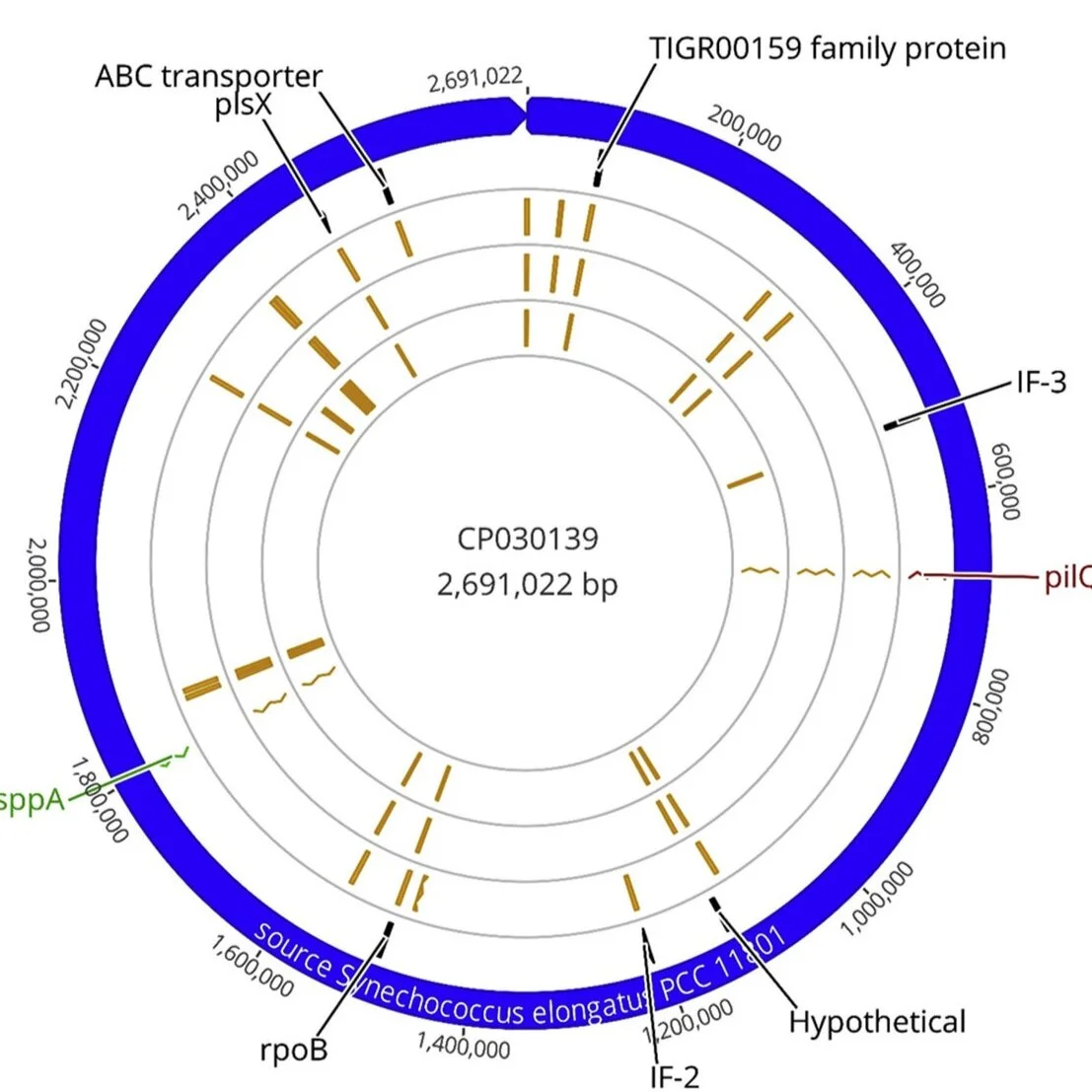OpenPlant PI Chris Howe (University of Cambridge) and his team recently published collaborative work with colleagues from the Indian Institute of Technology Bombay describing the directed evolution of cyanobacteria for improved resistance to high-alcohol environments. This improved tolerance makes the new cyanobacterial strain a promising host for photosynthetic production of biofuels.
Adaptive laboratory evolution of the fast-growing cyanobacterium Synechococcus elongatus PCC 11801 for improved solvent tolerance.
Vaibhav Srivastava, Ruth Amanna, Stephen J.L. Rowden, Shinjinee Sengupta, Swati Madhu, Christopher J.Howe, Pramod P. Wangikar
Journal of Bioscience and Bioengineering (2021) Volume 131, Issue 5, Pages 491-500.
https://doi.org/10.1016/j.jbiosc.2020.11.012
ABSTRACT
Cyanobacteria hold promise as cell factories for the photoautotrophic conversion of carbon dioxide to useful chemicals. For the eventual commercial viability of such processes, cyanobacteria need to be engineered for (i) efficient channeling of carbon flux toward the product of interest and (ii) improved product tolerance, the latter being the focus of this study. We chose the recently reported, fast-growing, high light and CO2 tolerant cyanobacterium Synechococcus elongatus PCC 11801 for adaptive laboratory evolution. In two parallel experiments that lasted over 8400 h of culturing and 100 serial passages, S. elongatus PCC 11801 was evolved to tolerate 5 g/L n-butanol or 30 g/L 2,3-butanediol representing a 100% improvement in concentrations tolerated. The evolved strains retained alcohol tolerance even after being passaged several times without the alcohol stress suggesting that the changes were permanent. Whole genome sequencing of the n-butanol evolved strains revealed mutations in a number of stress responsive genes encoding translation initiation factors, RpoB and an ABC transporter. In 2,3-butanediol evolved strains, genes for ClpC, a different ABC transporter, glyceraldehyde-3-phosphate dehydrogenase and phosphoribulokinase were found to be mutated. Furthermore, the evolved strains showed significant improvement in tolerance toward several other alcohols. Notably, the n-butanol evolved strain could tolerate up to 32 g/L ethanol, thereby making it a promising host for photosynthetic production of biofuels via metabolic engineering.

